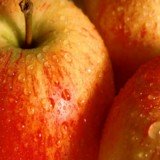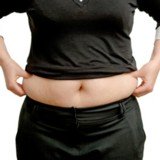Healthy Eating During Pregnancy
Healthy Eating During Pregnancy and Breastfeeding
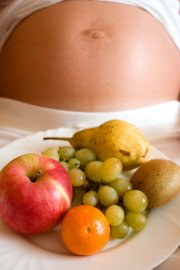 Pregnancy can be one of the most exciting times of a woman's life. Well, at least it's supposed to be! It comes with morning sickness, heartburn and constipation too which for some can be really bad. Nevertheless, carrying another life that is developing on the inside of you is just amazing and a beautiful experience. In addition to the few set-backs we've just mentioned, it's obvious that pregnancy brings along with it a lot of demands for your body. You therefore need to make sure you're eating healthy and nutritious foods to meet these demands as well as avoid putting strain on yourself.
Pregnancy can be one of the most exciting times of a woman's life. Well, at least it's supposed to be! It comes with morning sickness, heartburn and constipation too which for some can be really bad. Nevertheless, carrying another life that is developing on the inside of you is just amazing and a beautiful experience. In addition to the few set-backs we've just mentioned, it's obvious that pregnancy brings along with it a lot of demands for your body. You therefore need to make sure you're eating healthy and nutritious foods to meet these demands as well as avoid putting strain on yourself.
As you may already know, when you're pregnant, it is the placenta that carries nutrients and oxygen to your baby. Unfortunately, the placenta can also pass through harmful substances such as drugs and alcohol to your baby should you consume them when you're expecting. This is therefore one of the reasons why you should eat healthy and avoid smoking and drinking when you're pregnant. When you take good care of yourself, you're also taking great care of your baby.
Having said this, there are some important nutrients you should make sure you have in your diet without fail. These include Calcium, Vitamin D, Iron and Folic Acid which is also known as Folate. These are essential in your healthy eating during pregnancy diet. They're important for the good health and development of your baby as well as for you. We will now look at each of them them briefly. Folic Acid or Folate prevents or reduces the risk of birth defects such as spina bifida and other neural tube defects or birth defects of the brain. In your first trimester of pregnancy, eat lots of folate-rich foods. Examples include cabbage, broccoli and spinach just to mention a few.
Iron is essential for the formation of red blood cells for both you and your baby. One of the things that Iron does is aid in the transportation of oxygen in your blood from your lungs to your tissues and other organs. This is especially important when you're pregnant because your baby's brain and body need oxygen and iron to grow. If you're not getting enough Iron, your baby may end up not getting enough oxygen for normal growth and development. When you're pregnant, your ability to absorb iron is increased. This is also true for when you're breastfeeding. You could also eat your iron rich foods together with Vitamin C rich foods.
This is because Vitamin C increases your body's ability to absorb iron. A few examples of iron rich foods include red meat, green leafy vegetables, beans and fortified cereals. A few examples of vitamin C rich foods include tomatoes, carrots, celery, fruits and acidic foods. Avoid drinking coffee and tea together with your iron-rich foods as they reduce your ability to absorb iron. Alternatively, you may have them in between your meals. Should you want to take supplements, you should discuss this with your doctor first. In fact, never take any supplements before consulting your physician.
Healthy eating during pregnancy means you must take in calcium-rich foods. Calcium is important for the development and good health of your bones and teeth as well as your baby's. Vitamin D prevents your baby from developing rickets as well as provide you with healthy bones and teeth. One of the best ways to get Vitamin D is to go outside in the sunny weather. Vitamin D can be produced when your skin is exposed to sunlight. But remember not to over-do it as well as to put some sun screen. One other thing you may want to consider adding in your healthy eating during pregnancy diet is oily fish such as salmon. They are a rich source of essential Omega-3 and Omega-6 fatty acids which amongst other things aid in the healthy development of your baby's brain.
Healthy Eating During Pregnancy (the 5 food groups)
So what else comes in the healthy eating during pregnancy eating plan? Just like every other ordinary person, it's important that you eat from the 5 food groups. The food pyramid diagram explains these through. It, together with My Plate help you to achieve a healthy eating pattern. We will also briefly take a look at each of the food groups and how they relate to your pregnancy diet.
The Carbs group: eat more of the unrefined grains where possible. These are the whole grain, whole meal, whole wheat bread, pasta and cereal, oatmeal, rye bread, barley, quinoa, millet, buckwheat and brown rice. In this group you will also find potatoes. These foods are mostly the ones that provide you with energy as well as other minerals, vitamins and nutrients such as zinc, calcium, B-vitamins and Iron which, as we have mentioned earlier is very important in pregnancy. Let the base of all your meals come from this food group.
Next is the Fruits& Vegetables group: Eat variety here and have plenty of these nutrient dense foods. Try by all means to get fresh organic fruits and vegetables. However, you may also get pickled, dried, canned, juiced and frozen options as well. However, when you're practicing healthy eating during pregnancy you should watch the sugar and sodium content in the canned, pickled and some dried varieties. Your vitamin C in vegetables can be easily lost during cooking. So to avoid this, steam, bake, stir fry or saute your vegetables in very little water or oil for the latter 3 methods of cooking, for a maximum of 5-10mins depending on the type of vegetable. You can also eat your fruits and vegetables raw or lightly cooked, depending on what it is. Healthy eating during pregnancy means you can also eat fruits and vegetables as great snack options in between meals.
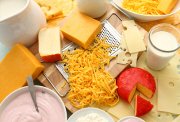 The Milk and dairy products group: this is a great source of protein, B Vitamins, Vitamin A and calcium. Calcium is essential for strong bones and teeth both for you and your baby. However, if you don't take in enough calcium when you're pregnant, your baby will take its supplies from your body's stores.
The Milk and dairy products group: this is a great source of protein, B Vitamins, Vitamin A and calcium. Calcium is essential for strong bones and teeth both for you and your baby. However, if you don't take in enough calcium when you're pregnant, your baby will take its supplies from your body's stores.
This will leave your body vulnerable to conditions such as osteoporosis when you age. Therefore healthy eating during pregnancy means you need to take in your recommended daily allowance of the mineral. It also aids with the formation of breast milk. From this food group, choose the low-fat or fat-free, pasteurized options, e.g., 1% milk or low-fat yogurt, cheese, etc.
The meat, fish, poultry and bean group: This is the main protein supplying group. The other food groups such as dairy also provide protein but this food group here specializes in supplying your body with protein. A few other foods that you may find in this group include eggs, lentils, soybeans, tofu, peanut butter and nuts. When picking your meats, the lean cuts are more suitable as they are healthier. Healthy eating during pregnancy also means that where possible, trim off any excess fat. Again, eat a whole lot of variety also from this food group, don't just stick to the meats. Eating a variety of foods from each food group can never be emphasized enough. When you're pregnant you don't necessarily have to "eat for two." You definitely have to increase your food intake but not for two. For example, the normal recommended daily intake for someone who's not pregnant for protein would be about 50 grams. When you're pregnant you will only need 10 grams more, bringing it to 60 grams!!
Oils, Sugars and Sweets group: These are mostly foods that are high in fat, high in sugar and or high in sodium and have to be consumed sparingly. A few examples include butter, margarine, sweets, pastries, lard, oils, desserts and sweetened drinks such as soda pops. When using oils, try and use vegetable oils such as olive and canola oil amongst a few others. Try and avoid animal fats. Should you need to use them, use very little quantities.
When you're breastfeeding, your baby eats what you eat through your breast milk. So this is why you need to eat healthy. Also, be sure to drink plenty of fluids. It aids in the formation of breast milk. Water, unsweetened beverages, coffee and tea are a few examples of what you can drink. Remember to have your tea and coffee and caffeinated drinks in between meals so that you don't interfere with your body's iron absorption. Also, limit the number of cups of coffee or tea that you have in a day. Too much caffeine may have adverse health effects on your baby.
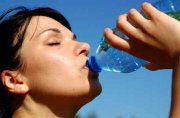 The same applies when you're pregnant. Drink lots of fluids. Practice having snacks in between your meals. As we again mentioned earlier, you can snack on things such as fruits, nuts, low-fat yogurt, vegetables and energy or cereal bars. Just be sure to check their nutrition facts first paying attention to sugar, fat, cholesterol and sodium content. It wouldn't be complete talking about eating healthy only when you're pregnant without mentioning exercise. Therefore, try and exercise or be active for at least 30 minutes a day.
The same applies when you're pregnant. Drink lots of fluids. Practice having snacks in between your meals. As we again mentioned earlier, you can snack on things such as fruits, nuts, low-fat yogurt, vegetables and energy or cereal bars. Just be sure to check their nutrition facts first paying attention to sugar, fat, cholesterol and sodium content. It wouldn't be complete talking about eating healthy only when you're pregnant without mentioning exercise. Therefore, try and exercise or be active for at least 30 minutes a day.
Healthy Eating During Pregnancy Guidelines Summary
Here below are the healthy eating during pregnancy guidelines that we've discussed in this article in summary:
- Watch for food safety. There has to be the highest level of hygiene so as to avoid food borne illnesses which you are more prone to when you're pregnant. this is because your immune system is weakened when you're pregnant due to hormonal changes that happen in your body during this time.
- Drink lots of fluids. Water and unsweetened drinks are the best choices.
- Snack in between meals. Snack on things such as fruits, vegetables, nuts, low-fat yogurt and cereal bars.
- Eat from each of the 5 food groups according to your recommended daily allowances.
- There are 4 main minerals and nutrients that you must make sure you have when you're pregnant. These are Iron, Folic Acid, Vitamin D and Calcium. (This however does not mean that you should ignore all the other mineral, vitamins and nutrients.)
- Eat iron-rich foods together with vitamin C rich foods so as to increase your body's ability to absorb iron.
- Drink caffeinated beverages in between your meals and not together with your iron-rich foods. This is because caffeine interferes with the absorption of iron by your body. Also limit the intake of these beverages as they may have adverse health effects on your baby.
- Eat variety from each food group.

